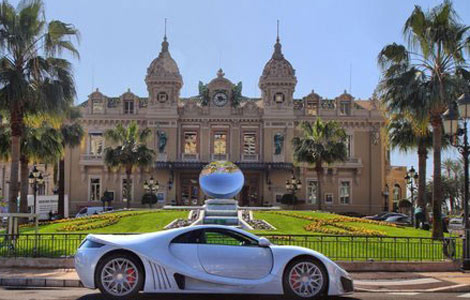Op-Ed Contributors
The risk of high capital flow
Updated: 2011-04-20 07:55
By Yilmaz Akyuz (China Daily)
It is almost impossible to predict the timing of capital reversals or their trigger even when the conditions driving the boom are clearly unsustainable. Still, it is safe to assume that the historically low interest rates in developed economies cannot be maintained indefinitely and the current boom can be expected to end when interest rates in the US start to edge up. It can also end as a result of a balance-of-payments crisis or a domestic financial turmoil in a major emerging economy, infecting the developing world even without tightened monetary conditions in the US.
The US is now in a deflation-like condition and the Federal Reserve is trying to create inflation in goods and asset markets. But its policies are adding more to the commodity boom, and credit and asset bubbles in developing countries, including China. If commodity prices are kept up by strong growth in China, the Fed could end up facing inflation but not the kind it wants. In such a case capital and commodity booms may end in much the same way as the first post-war boom ended in the early 1980s - that is, by a rapid monetary tightening in the US even before the economy fully recovers from the subprime crisis.
If, on the other hand, Chinese growth slows down considerably because of the monetary breaks now applied to control inflation, commodity prices may start falling sharply, particularly if large sums exit from commodity futures. This could create payment difficulties in commodity-rich economies and lead to extreme risk aversion and flight to safety.
Regardless of how the current surge in capital flows would end, it is likely to coincide with a reversal of commodity prices. The most vulnerable countries are those that have been enjoying the dual benefits of global liquidity expansion - the boom in commodity prices and capital inflows. Most of these are in Latin America and Africa and some are running growing deficits despite the commodity bonanza. The current situation thus invokes the memories of the 1980s when Mexico, a country that had enjoyed the twin booms in the preceding period - the hike in oil prices and expansion of international bank lending - was the first to fall into crisis.
Exporters of manufactured goods with strong payments and reserve positions, including China and smaller East Asian economies, are not seriously exposed to the risk of a currency and payments crisis. For them, an orderly slowdown in capital flows and softening of commodity prices could even bring benefits in terms of inflation, exchange rates and external payments. But the credit and asset bubbles under way expose them to a risk of a sharp asset correction and economic downturn, even more so than seen during the Lehman Brothers' collapse - only this time they would be in a much weaker position to respond.
When policies falter in managing capital flows, there is no limit to the damage that international finance can inflict on an economy. Multilateral arrangements lack effective mechanisms that restrict beggar-my-neighbor policies by reserve issuers or enforce control on outflows at the source. The task falls on recipient nations. But many developing countries still adopt a hands-off approach to capital inflows, while others have been making only half-hearted attempts. In either case taking capital controls much more seriously is now the order of the day.
The author is chief economist of South Centre, an intergovernmental think tank of developing countries headquartered in Geneva.
E-paper

Han me downs
Traditional 3,000-year-old clothes are making a comeback.
Reaching out
Fast growth fuels rise in super rich
Chinese tourists spend more
Specials

25 years after Chernobyl
Belarus, Ukraine and Russia will mark the 25th anniversary of the nuclear reactor explosion in Chernobyl.

Luxury car show
The world's most prestigious luxury, sports cars and supercars are displayed in Monaco.

Peking Opera revival
Traditional opera is enjoying a revival in Beijing thanks to some modern touches.
